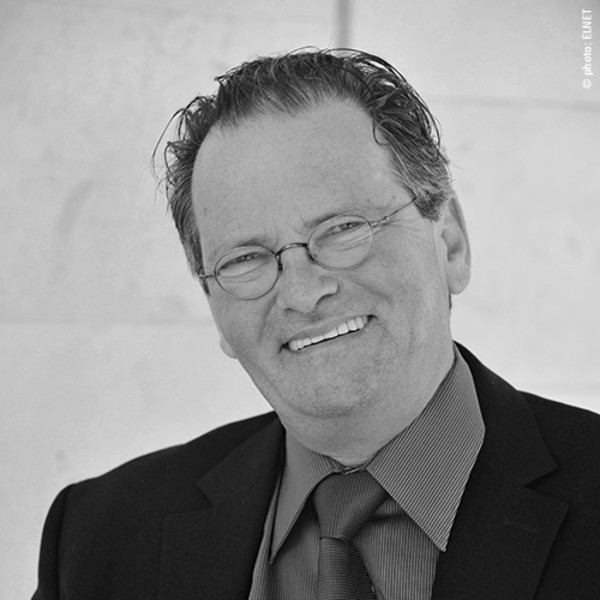An Interview with Dr. Roby Nathanson

"A good professional is one who all parties, even controversial ones, can rely on his opinion. The credibility during the years is the key of continuous successful work."
Our alumnus Dr Roby Nathanson has obtained an MA and PhD in Economics, specializing in international trade and development, from the University of Cologne. In addition to being one of our students, he has served as a Speaker at the open event “Discover Israeli Diversity!” in the last November of this year at our university.
With a vast experience over 30 years in economics and social research, working as CEO of the Macro Center for Political Economics, as well as advisor to the Israeli government in the mid-90s. He took part in the foundation of various projects, in areas such as economics and social research, policies and laws advise in the east Mediterranean zone.
During our conversation with Dr Roby Nathanson we were able to talk about the current relationship between Germany and Israel, as well as to tell us about his experience in the world of economics and as an advisor in his country.
Dear Roby, which perspective do you have on your study at our University today and how did your extensive experience play a role in your learning?
My studies focused on macroeconomic policies and international trade and hence provided me with many tools that I was able to apply during my practical work in Israel. In particular, I knew how to handle the inflationary crisis and therefore I was part of the team of economists who solved this crisis in the mid-1980s. Then I traveled to Mexico, Venezuela, Brazil and Argentina as an economic advisor.
Over the years I also applied my knowledge in structural economic reforms focused on the labor market.
You often speak about the historical relationship between Germany and Israel, and how the history of these two peoples has always intersected. How do you see the current situation between both countries and how do you think this relationship should occur in the future? In an economic and social aspect.
Germany and Israel have intensive relations in trade, culture, youth exchange and science. According to latest surveys the image of Germany in Israel has improved. However the holocaust remains an important component of this relations. It is therefore the duty of both countries to maintain the consciences of the past and transmit to the future generations the lessons to be learned from our common tragic history.
From the economic point of view the cooperation has great potential mainly in fields like high tech, energy and environment.
It is our duty as professionals to provide this accurate analysis. If opposing parties agree on the facts, the decisions will be rational and will benefit society as a whole.
As a former political and governmental advisor, how important is the joint work between experts and politicians to you? How does the collaboration between these two parties help in the creation and improvement of laws and policies?
Also during this days I advise governmental and non-governmental institutions crossing all sectors and parties. From my point of view a central issue is to rely the decision making process on objective information, facts and data.It is our duty as professionals to provide this accurate analysis. If opposing parties agree on the facts, the decisions will be rational and will benefit society as a whole. Politicians not always ask experts or use professional advise, hence the results of the decision are and outcome of sectoral pressures with a negative impact on the economy.
After more than three decades as a researcher and analyst, what do you think is the motivation behind a successful and long career as such?
We should believe in what we do and from the professional point of view not compromise on the outcome of a research result even if it contradicts your expectations. A good professional is one who all parties even controversial can rely on his opinion. The credibility during the years is the key of continuous successful work.
Combining work and studies can be very useful in the era of long life learning, which means that people change jobs and professions several times during their working life.
Do you think that experience of life is an important factor to start a master’s degree? In your own opinion, do you see a difference in perspective between students with working experience and them without?
Combining work and studies can be very useful in the era of long life learning, which means that people change jobs and professions several times during their working life. The dual educational system in Germany is a very good and successful model in that respect. In economics we learned in the last years to connect deeper theoretical models with the reality and rational decision making, which is essential for a better outcome in terms of general welfare.
As a professor and speaker, as well as a former student, what tips can you give to our own students starting a master degree? How can they best prepare for their career start?
-
To look at the reality in their ecosystem and acquire enough instruments to be flexible when new developments arise such as additional languages, computer skills and social capital.
-
Networking with various interest groups and colleagues from different sectors and professions.
-
It is essential of course to be permanently up to date and most of all generate abilities to forecast future developments and be ready to new challenges in due time.
Thank you for the Interview!
Cristina Alvarez de la Rivera Kater